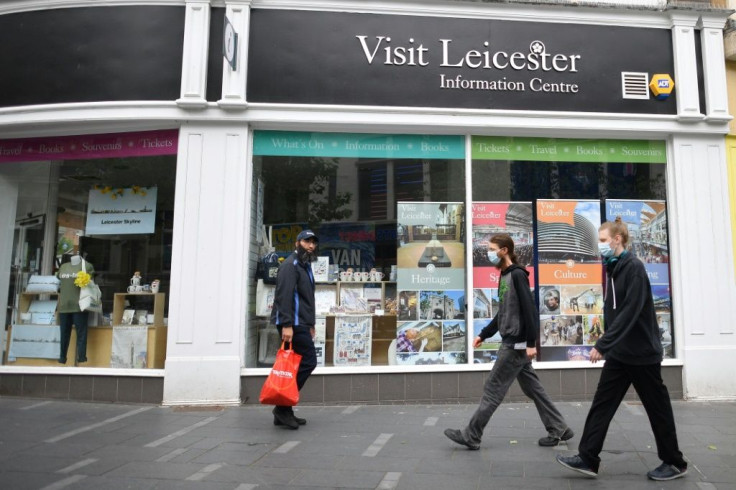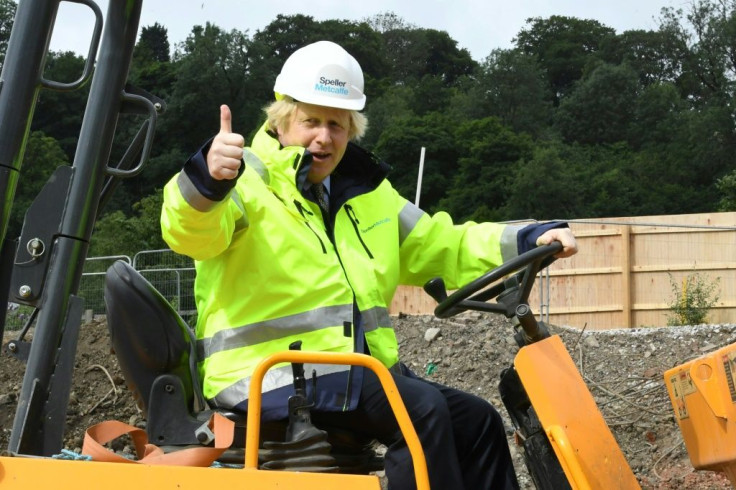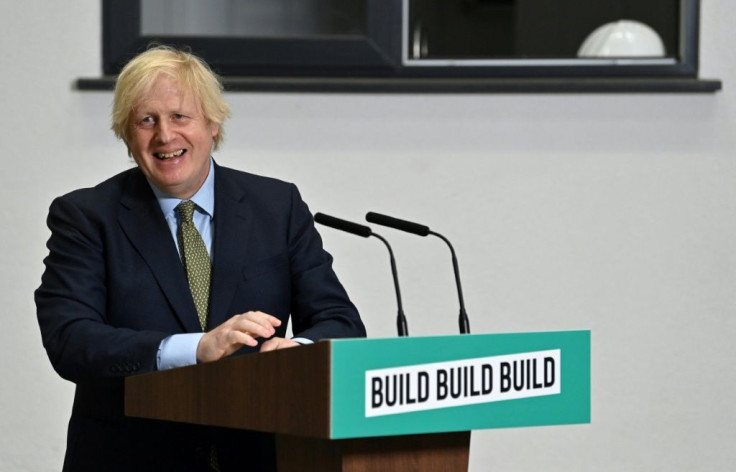UK PM Pledges 'Infrastructure Revolution' For Virus Crisis
Prime Minister Boris Johnson pledged on Tuesday to deliver an "infrastructure revolution" to help Britain build its way out of the economic devastation of the coronavirus outbreak.
But his optimistic message was thin on detail and reminiscent of last year's election pledges.
And it was overshadowed by the first local lockdown since an easing of measures was announced, because of a spike in cases in the city of Leicester, central England.
Shops which only reopened two weeks ago after being shut for more than three months were forced to close again, and travel was restricted to the city.
Johnson tried to harness the can-do spirit that US president Franklin D. Roosevelt adopted when he introduced a "New Deal" for tackling the Great Depression 90 years ago.

"This is a programme for jobs, jobs, jobs because it's by building, building, building... that we will get the jobs this nation needs," he said after touring a construction site in Dudley, 40 miles (64 kilometres) in the West Midlands, central England.
"It sounds like a New Deal, and all I can say is, if that is so then that is how it is meant to sound ... because that is what the times demand."
He promised ?1 billion ($1.2 billion) for school repairs and a further ?4 billion for "shovel-ready" projects from road maintenance to public transport in what he said was a new "infrastructure revolution" that would also build new homes.

Johnson's message was thin on detail, particularly on jobs, and in part repackaged broad-brush promises his Conservative party made before December's general election.
He pledged again to spread the wealth more fairly from London to economically struggling regions that traditionally supported the opposition Labour party.
"Too many parts of this country have felt left behind, neglected, unloved," he said.
That pledge helped Johnson secure a record 80-seat parliamentary majority that enabled him in January to take Britain out of the European Union after repeated delays.
But Britain is now dealing with Europe's deadliest virus outbreak and the worst economic contraction among the Group of Seven (G7) leading industrialised states.

And Johnson's once soaring approval ratings slipped into negative territory in a YouGov poll this month.
Opposition leaders said the ?5 billion announced on Tuesday was simply bringing forward some of the money promised in a spending plan his government had already unveiled for the coming five years.
"What's been announced amounts to less than ?100 per person, and it's the re-announcement of many manifesto pledges and commitments," opposition Labour party leader Kier Starmer said.
The CBI business lobby's director Carolyn Fairbairn said "a restorative injection of infrastructure investment" could help the UK economy.
But "the reality is that longer-term plans will falter without continued help for firms", she warned.
Johnson's rambunctious style and oratoratorical flourishes have appealed to Britons tired of ceaseless battles over Brexit that dragged on for nearly four years.
The 56-year-old former journalist remains popular in his party and has commanding control of Britain's political agenda.
But he has faced criticism for Britain having the world's third-highest virus death toll in the outbreak -- now officially at 43,730 -- and for his handling of the lockdown.
Labour's Starmer has accused Johnson of falling "asleep at the wheel" -- and the Leicester lockdown will be a further test of his strategy to fight the disease.
It will mean the city's pubs and restaurants will not fully reopen along with those across the rest on England from this weekend.
Johnson expects the reopening to help ease the economy back to life.
Revised official data released on Tuesday showed Britain had suffered its biggest quarterly contraction for more than 40 years.
That data only included the first full week of the lockdown and subsequent damage is set to be considerably worse.





















